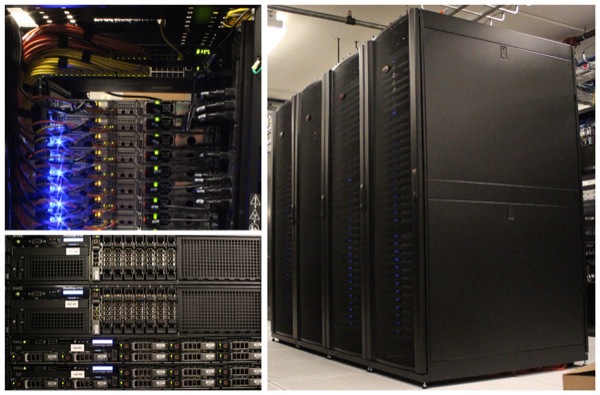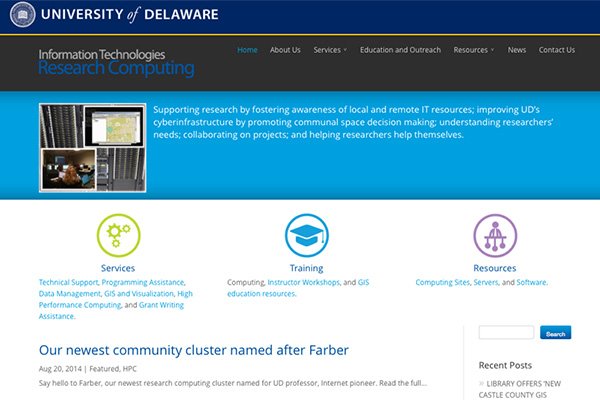


Research computing news
New high-performance computing cluster, research computing website available
11:19 a.m., Sept. 16, 2014--Building on the success of the Mills High-Performance Computing (HPC) cluster, the University of Delaware’s second community computing cluster is now available. The new cluster has been named Farber in honor of David Farber, UD professor and Distinguished Policy Fellow in the Department of Electrical and Computer Engineering.
Researchers who invested in the Farber cluster were granted access on Tuesday, Sept. 16. "Farber has been configured to be very similar to the Mills cluster," said Jeffrey Frey, IT Network and Systems Services. "Researchers with experience on Mills should find Farber to be a familiar environment."
Research Stories
Chronic wounds
Prof. Heck's legacy
The Farber cluster gives more UD researchers access to HPC resources and will provide faculty with faster compute nodes and more storage than is available on Mills.
UD’s HPC cluster program is designed to give researchers who need to perform complex computational tasks cost-effective access to the computing power they need.
The University uses a cooperative, community cluster architecture for its HPC systems. Periodically, IT staff work with University faculty to develop the specifications for an HPC cluster, with the purchase financed both by IT (cluster infrastructure, storage, and networking) and by individual faculty researchers (individual compute nodes).
This community cluster model is advantageous for researchers, allowing them priority access to high performance computing power while sparing them the ongoing financial liability of purchasing and running their own computing clusters.
Compute nodes on the Farber HPC cluster are still available for purchase. See IT’s information page about the new cluster for detailed information about Farber. To inquire about purchasing compute nodes, send email to it-hpc-interest@udel.edu.
IT has also redesigned its Research Computing website to provide more information about the many services offered to campus researchers, including technical support, programming assistance, training opportunities, data management, GIS and visualization, computing sites, servers and software.
The new site includes a Research Computing Help Request form that will make it easier for UD researchers to contact IT staff. In the problem details section of the form, researchers can choose from a variety of topics including data management, education and outreach (training requests), assistance with grant writing, GIS, high performance computing, programming assistance, and technical support. For example, Farber users can provide feedback by submitting a Research Computing Help Request form, selecting "High Performance Computing" from the "Problem details" menu, selecting "Farber Cluster" in the cluster type submenu, and then typing the details in the "Problem description.









